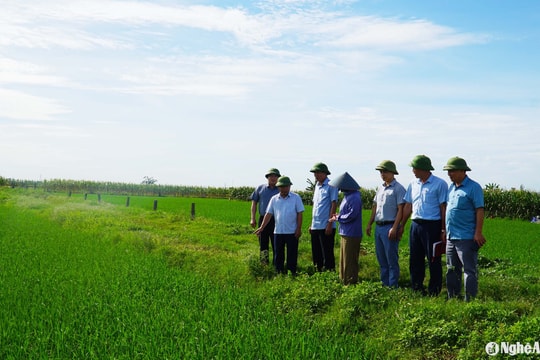Reservoir water runs dry, Nghe An farmers install field pumps to save rice
The continuous heat of the past few days has caused many reservoirs in Nghe An to run out of water, forcing farmers to use field pumps to save their rice.
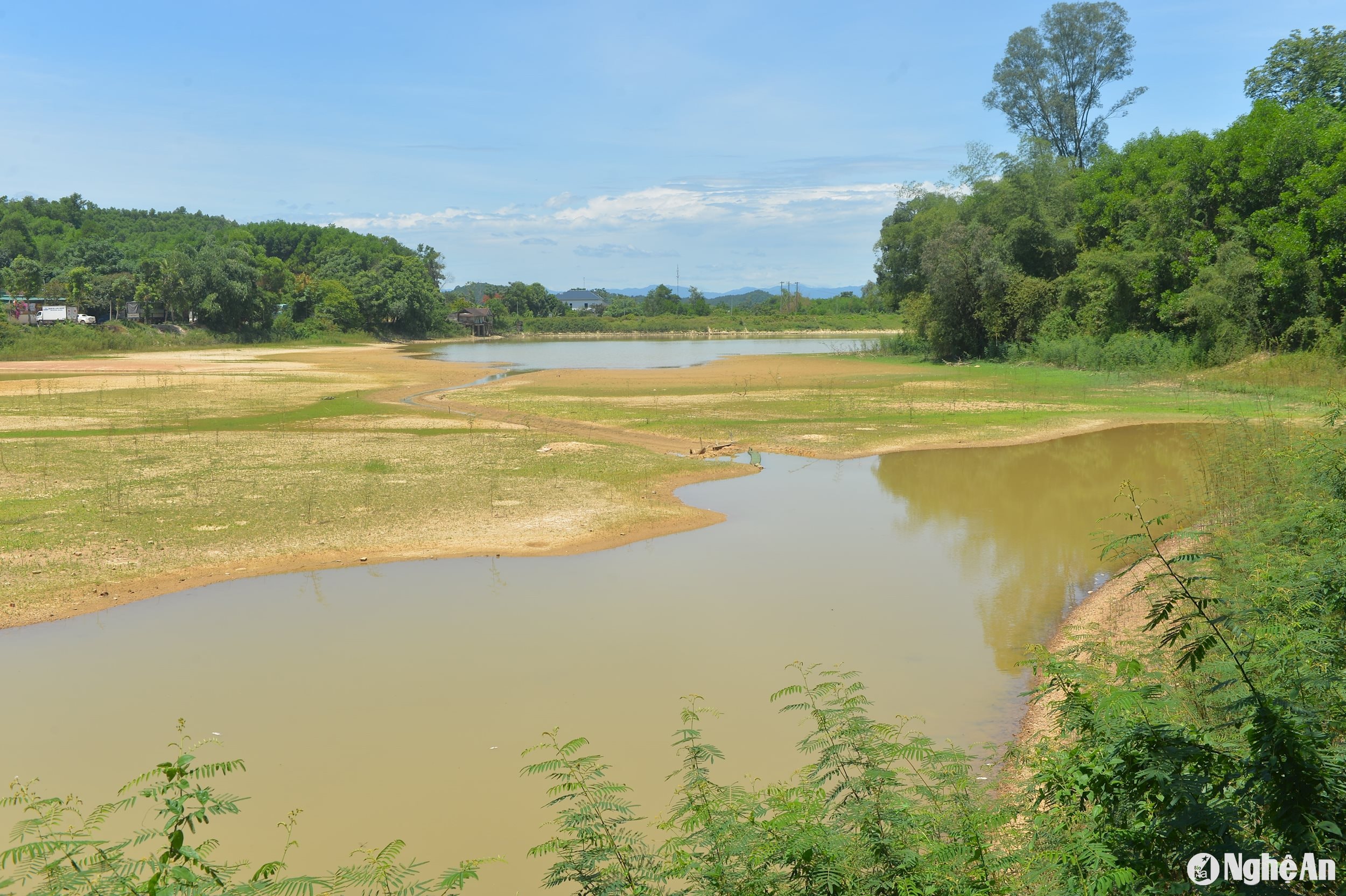
At this time, in Thai Son commune, Do Luong district, it can be seen that some rice and crop areas are lacking water. In hamlet 2, Thai Son commune, a field pumping station is operating at full capacity. Mr. Hoang Van Co - Vice Chairman of Thai Son commune People's Committee said: Due toreservoirYen Trach is dry and cannot provide enough water for summer-autumn rice, so the commune had to install field pumps to irrigate 40/345 hectares of rice in the whole commune.
Pump capacity reaches 100 m3/hour, water is taken from pumping station No. 1, pumped to Phu Nu canal, from this canal is pumped up to irrigate rice. However, the current difficulty is due to the intense heat, each pumping session lasts 7-8 days, every time the machine stops, the fields dry up again, not to mention that the pump is an old, degraded pump so it often breaks down, affecting the irrigation.
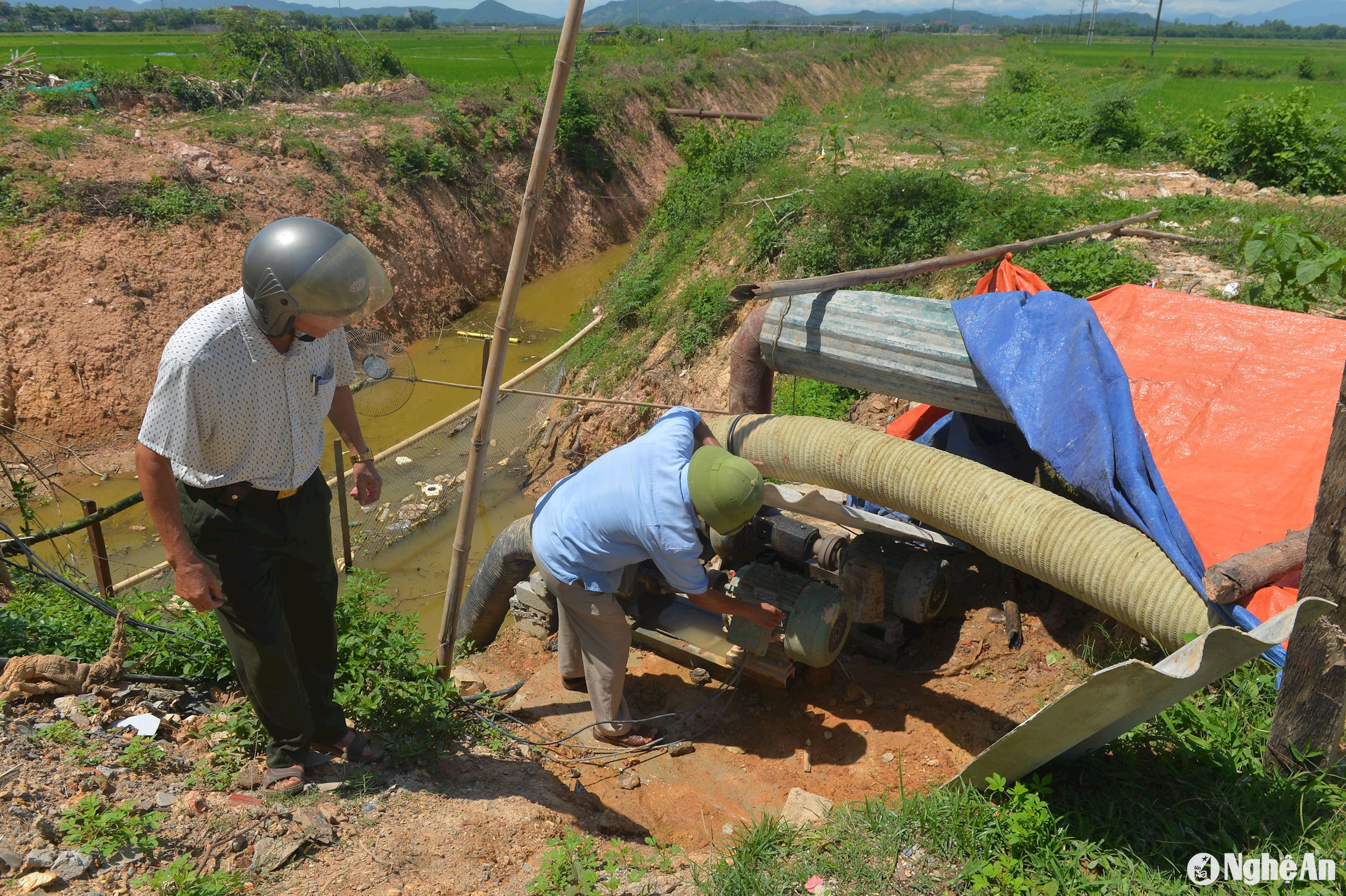
Mr. Nguyen Ba Chau - Deputy Head of the Department of Agriculture of Do Luong district said: The whole district has more than 120 large and small reservoirs, serving over 2,500 hectares of rice, however, currently most of the reservoirs only reach 20-30% of capacity, in which some reservoirs have dried up. Currently, the whole district has over 300 hectares of rice suffering from drought in the communes of Giang Son Dong, Giang Son Tay, Bai Son...
To cope with the drought, Do Luong district has directed communes to proactively prepare field pumps, small mini pumps, to pump water in some areas of streams and dead-end rivers to supplement irrigation for the lake area. But with the situationhotIf the drought continues in the coming days, the area of rice affected by drought will continue to increase.
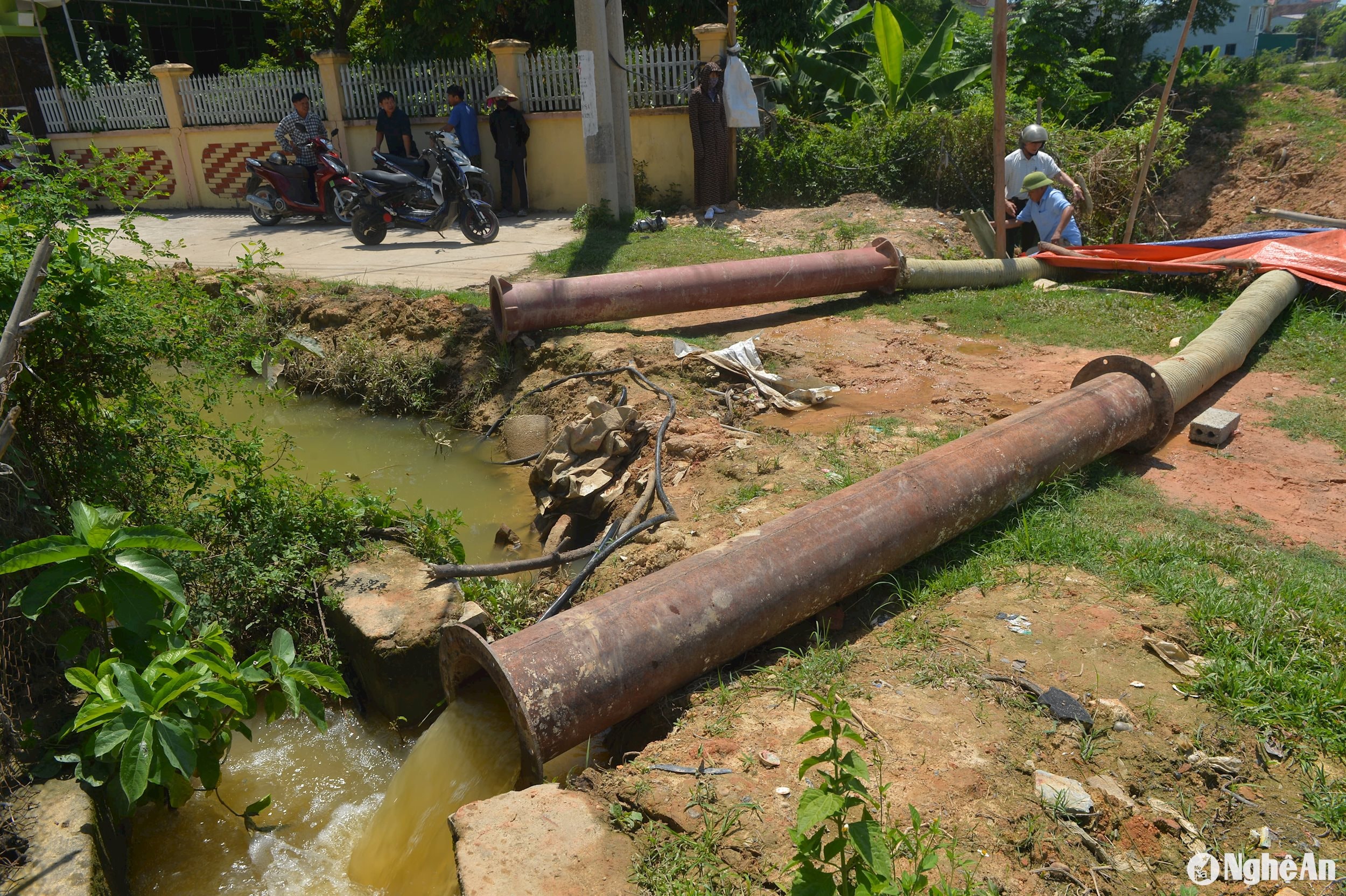
The intense heat of the past few days has caused many rice fields in Nghi Loc district to dry up and crack. At Khe Cai reservoir, Nghi Lam commune, field electric pumps have been installed to take water from the reservoir to save the rice. Mr. Vu Dinh Dong - Director of Nghi Lam Agricultural Service Cooperative said: Khe Cai reservoir, which irrigates nearly 100 hectares of rice, has now run out of water. The cooperative has installed two field electric pumps to "drain" water from the reservoir with a capacity of 30 m3/hour to water rice.
The cooperative staff in coordination with the hamlets operate the water supply to the rice fields. However, if the weather is hot, the reservoir will dry up in 2-3 days, unable to provide enough water to irrigate the rice, while at this stage the rice is in the ear-forming stage, with a high risk of crop failure.
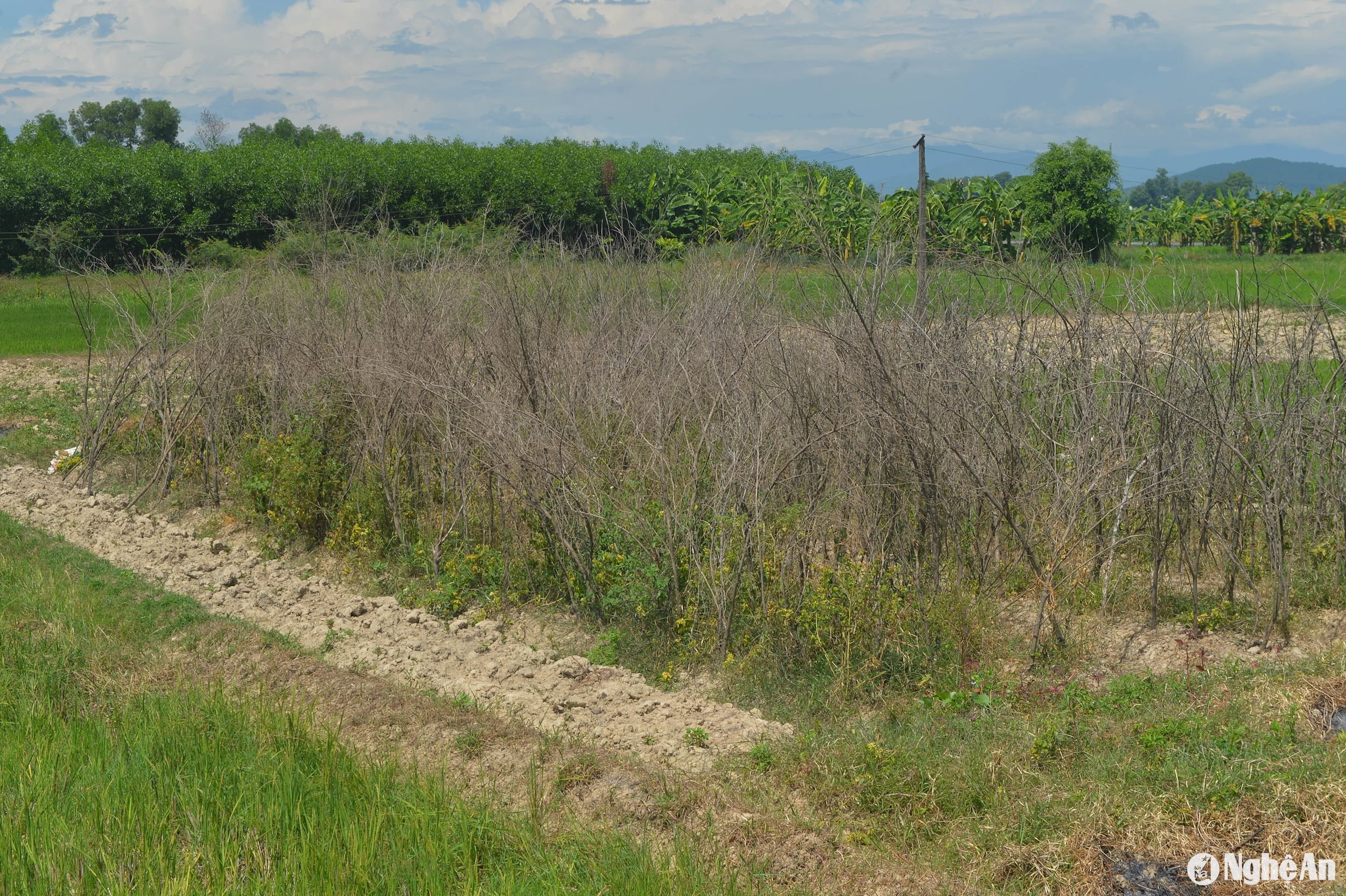
According to the report of the Department of Agriculture and Rural Development of Nghi Loc district, this summer-autumn crop, Nghi Loc district planted over 4,900 hectares of rice. Due to prolonged heat, currently the district has over 250 hectares of rice suffering from drought.
The current difficulty is that Nghi Loc district has over 40 reservoirs, most of which have been exhausted. The district is focusing on directing irrigation units as well as communes to take advantage of surface water sources such as ponds, lakes, dead-end rivers, and return water sources, using field oil pumps and mini electric pumps to pump water in some stream areas, and return water to supplement the reservoir area.
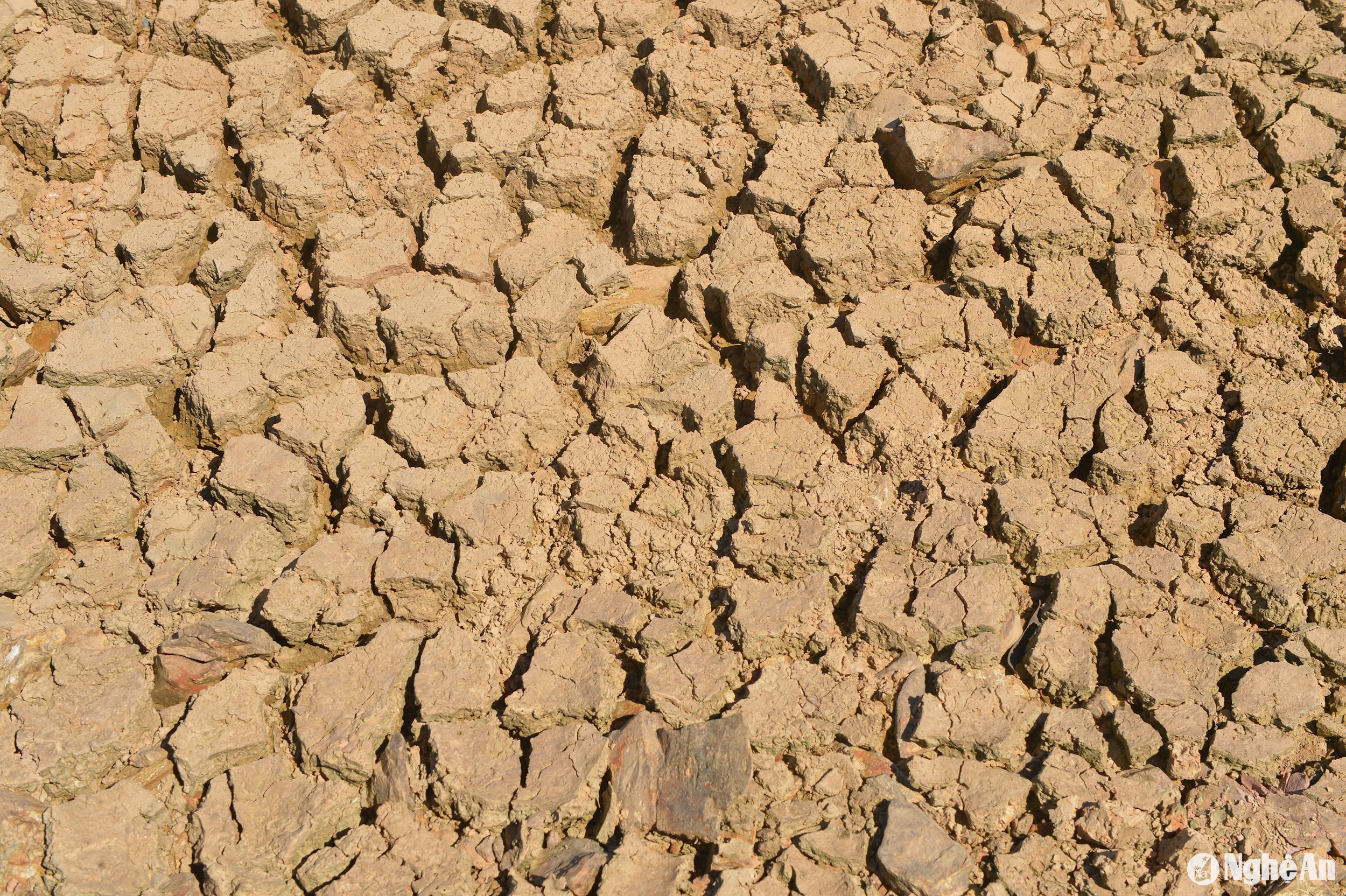
According to information from the Irrigation Department, up to now, Nghe An has 1,061 reservoirs, of which over 800 reservoirs have water levels below 50% of capacity, of which 108 reservoirs are managed by local authorities, 18 reservoirs are managed by irrigation limited liability companies. Currently, there are quite a few large reservoirs in the area that are dry, such as Ve Vung reservoir in Dong Thanh commune with a capacity of 22 million m3 of water, now only 30% of capacity, Xuan Duong reservoir in Dien Phu commune (Dien Chau) with a capacity of 11 million m33water, now only about 35% capacity left...
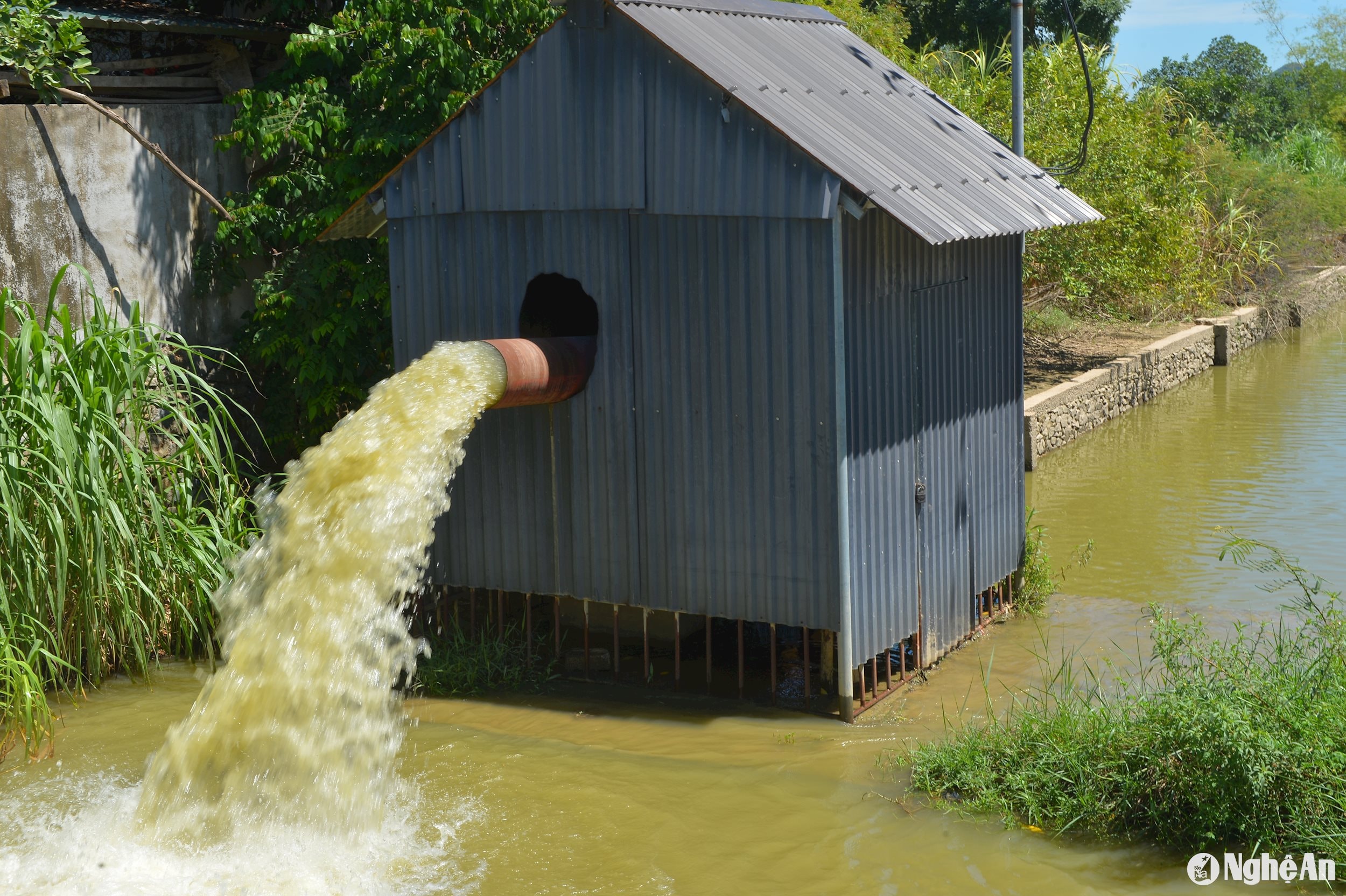
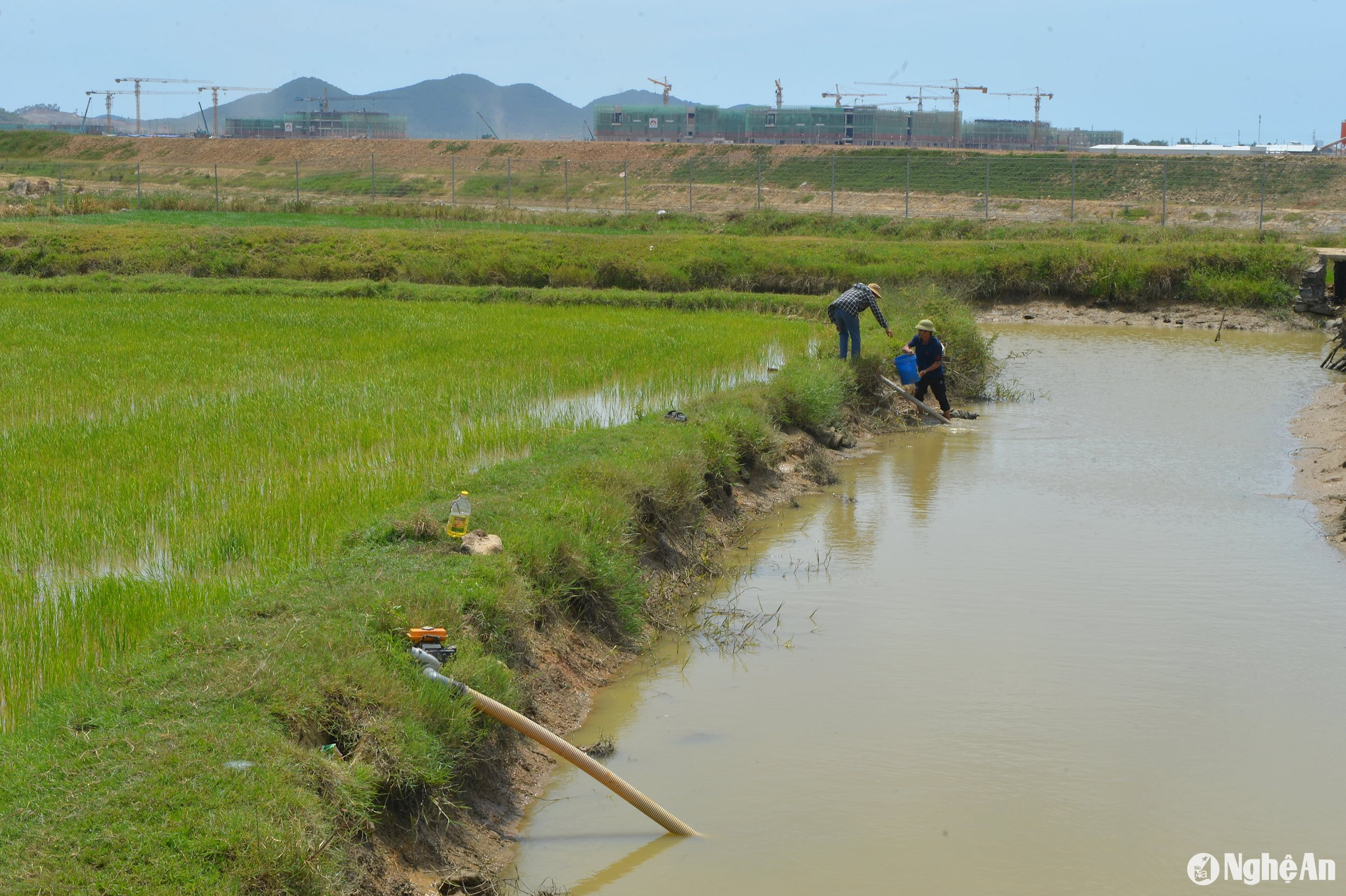
To proactively prevent and combat drought, Nghe An Irrigation Department has recommended that local irrigation units strictly manage water sources at reservoirs, develop plans to open water economically and scientifically, and irrigate according to the motto "watering high distances first, watering low distances later". It is possible to take advantage of dead-end river water sources and recirculating water sources by using field pumps to pump additional water to reservoir areas./.


